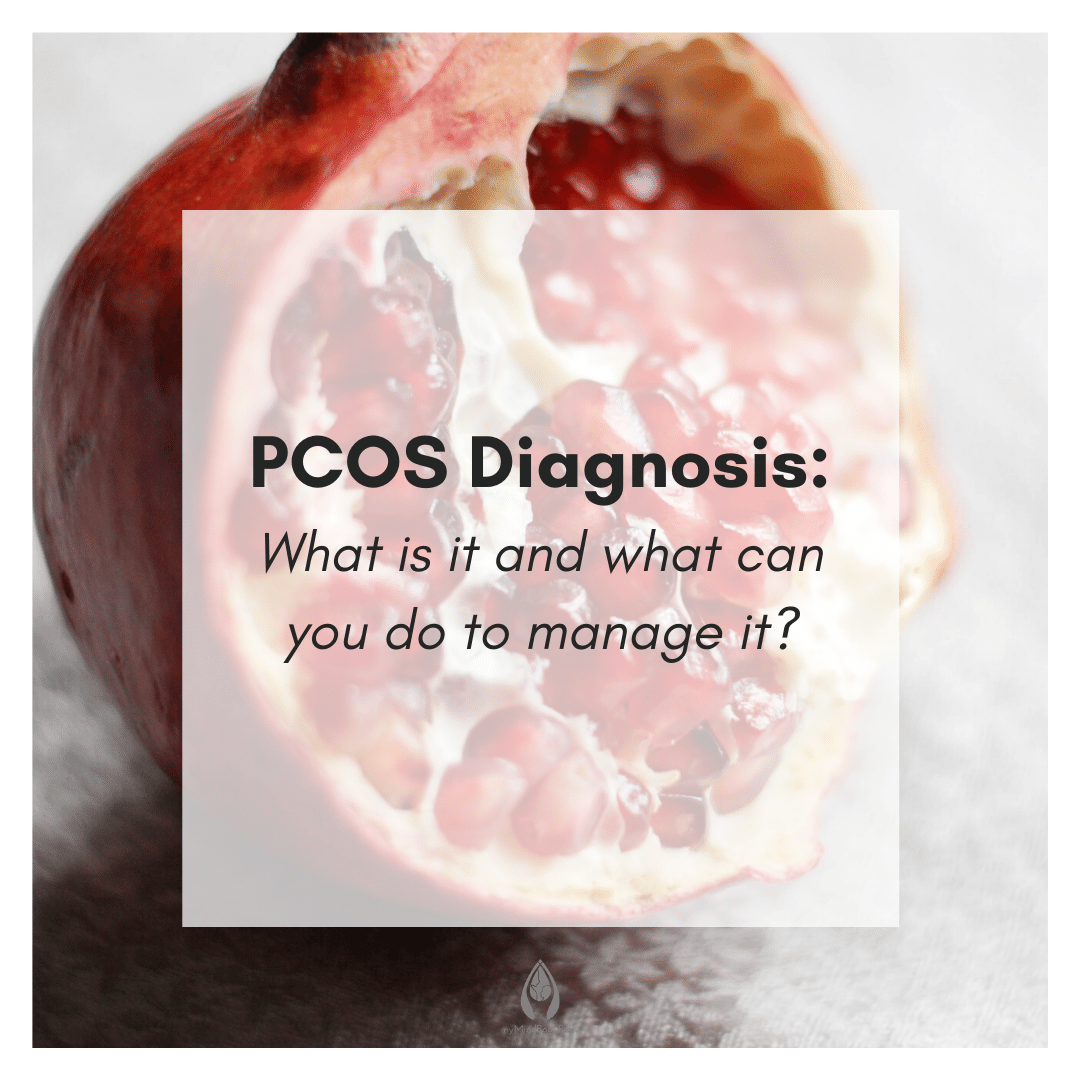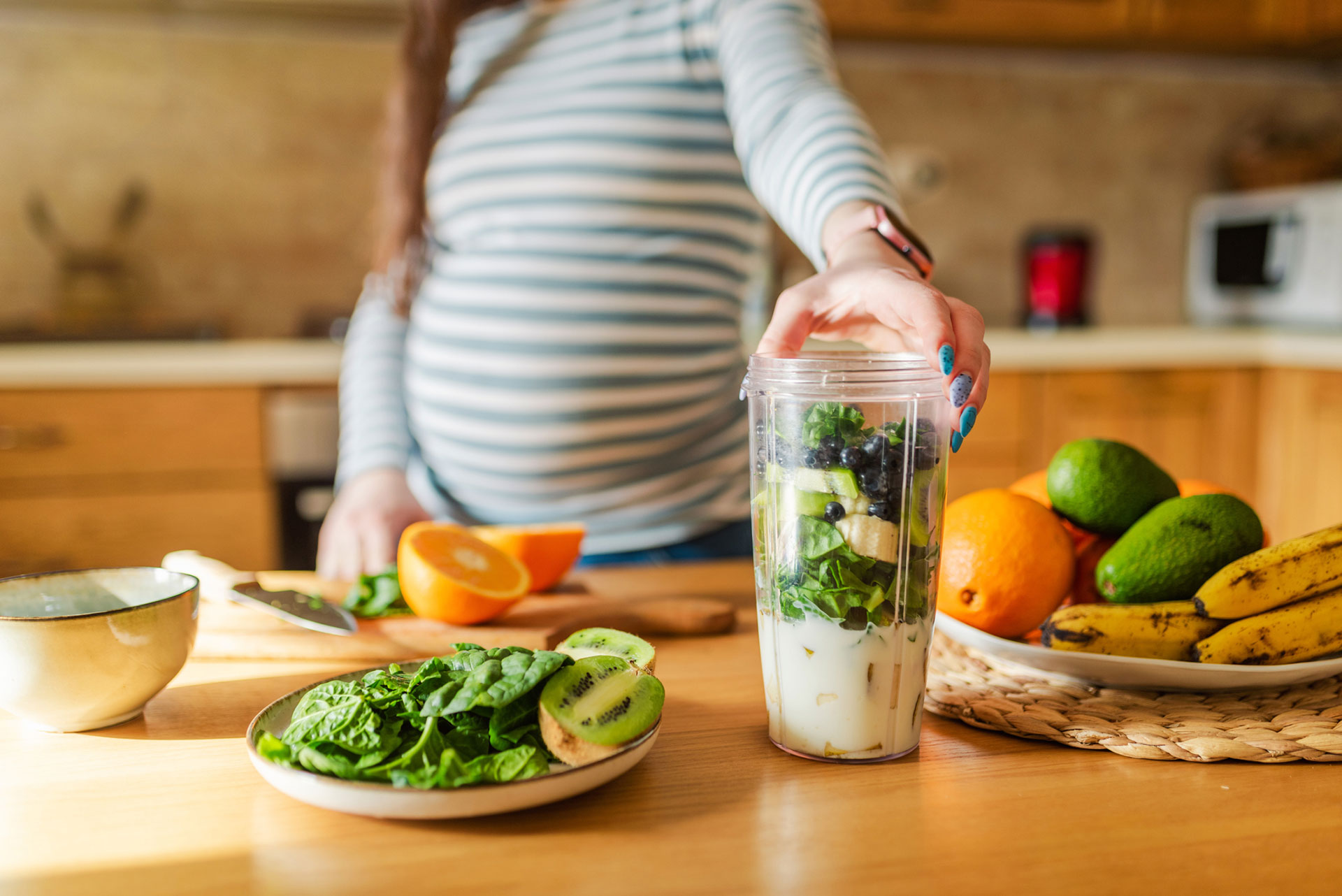“PCOS Diagnosis: What is it and what you can do to manage it?” | myMindBodyBaby
PCOS Diagnosis: Are you 1 in 10?
A PCOS diagnosis can significantly impact a woman’s quality of life. PCOS stands for Polycystic Ovarian Syndrome and its symptoms can touch all elements of a woman’s life – her mood, her skin, her weight, her menstrual cycle, hair growth (too much in some areas, not enough in others) and her outlook on life.
PCOS Prevalence
Most estimates place the prevalence of PCOS at roughly 10% of women of childbearing age. That is a significant number of women – in Canada, that is roughly 1.4 million women and in the US it is upwards of 10 million.
Fertile Frustrations
One major aspect of a PCOS diagnosis for many women is the impact on her fertility. In fact, difficulty conceiving often prompts investigations that lead to a PCOS diagnosis. One of the leading causes of female infertility is, you guessed it, PCOS.
Diving Deeper
What is PCOS? PCOS is a disorder of the endocrine (hormone) system. Your endocrine system is like your internal communication network. It helps different areas of your body communicate with one another through chemical messages. It is comprised of glands (organs that produce hormones) that help regulate things like your metabolism, reproduction, sleep, mental state, and growth. You’ve probably heard about many of your glands, like your adrenal glands (on your kidneys), pituitary gland (in your brain) and your thyroid gland (in your neck). Did you know your ovaries are also a gland? Your ovaries produce estrogen and progesterone – these hormones, as you are probably well aware – play a critical role in your menstrual cycle, fertility and ability to support a pregnancy.
Hormonal Impact of PCOS
One of the ways PCOS is diagnosed is by checking the levels of androgen (male) hormones in a woman’s blood. Women with PCOS often have higher than average levels of male hormones (such as testosterone), which can impact ovulation and menstruation. Normally, each month your body matures one egg. Follicle stimulating hormone (FSH) prompts your body to produce a follicle and once it grows and matures luteinizing hormone (LH) surges and you ovulate (this is what your ovulation kits are detecting – the LH surge just prior to ovulation). With PCOS, the ovaries can contain many follicles (fluid-filled sacs – these are the “cysts” in PCOS ovaries) – however, the eggs in the sacs do not mature enough to be released. The lack of ovulation has a cascade effect – estrogen, progesterone, LH and FSH levels are all impacted. The female hormones – estrogen and progesterone – are depressed, while the male androgens – which include testosterone – are elevated.
Insulin: Chicken and Egg
Insulin levels are also often elevated in women with PCOS, and insulin resistance is another way PCOS can be diagnosed. If you have insulin resistance you require higher levels of insulin to keep your blood sugar levels normal. However, high levels of insulin are one of the drivers of ovulation disturbances, causing the ovaries to produce more testosterone, as described above. Insulin resistance and PCOS can cause weight gain (among many other symptoms), and higher levels of body fat can contribute to worsening insulin resistance and additional PCOS symptoms.
Additional Impacts of PCOS
In addition to fertility issues and insulin resistance, PCOS is associated with a number of other health issues. In fact, the insulin resistance itself is what contributes to the majority of other issues. Other health issues include type 2 diabetes, heart disease, metabolic syndrome and even cancer. Metabolic syndrome is a serious condition associated with higher levels of abdominal adipose tissue (fat), high “bad cholesterol” levels (LDL), low “good cholesterol” levels (HDL), high blood sugar and high blood pressure – all of which can increase the risk of strokes, heart disease and diabetes.
So how do you deal with the impact of PCOS?
None of what we have imparted so far sounds very positive. This is a lot to take in. In fact, it is such a frustrating disease for women to deal with that many suffer from anxiety and depression – on top of everything else we have described.
Unfortunately, there is not a cure for PCOS, but there are a number of different ways to manage the symptoms of this disease – and the course of action you and your healthcare provider decide is most appropriate for you will depend on what symptoms would like to address. Modifying your lifestyle habits can have a positive impact on many of the symptoms. Additionally, there are different medications that can be taken – like birth control if you are not trying to conceive (this can help normalize your menstrual cycle, reduce acne, and help control unwanted hair growth). Conversely, there are fertility medications available if you are trying to conceive (these can impact estrogen levels to induce ovulation).
46]
Step # 1 Lifestyle Modifications
Diet and nutrition can work beautifully together to help manage PCOS symptoms. Both can help improve insulin resistance, mental outlook, and body composition.
From a nutritional perspective, you will want to consume foods that have a low glycemic index (GI). Foods with a low GI are digested more slowly and do not cause your insulin levels to rise as quickly as they would with foods that have a higher GI. PCOS is also associated with inflammation – and eating foods that are anti-inflammatory, such as berries, leafy greens and “good fats” can help to this regard. You may think having a PCOS diagnosis means bye-bye desserts – but that doesn’t have to be the case! If you have a sweet tooth we have a super easy PCOS friendly dessert option for you:
Chocolate Banana Ice Cream

This super easy-to-make ice cream only requires two ingredients and is PCOS friendly!
- 2 bananas (frozen and sliced)
- 2 tbsp cocoa powder
- Add frozen bananas and cocoa powder to food processor and blend. Occasionally scrape down the sides and continue to blend until smooth (approximately 3 to 5 minutes).
- Scoop into a bowl and enjoy immediately as soft serve or for firmer ice cream, place in an airtight, freezer-safe container and freeze for at least 1 hour before scooping
From a fitness perspective, if you aren’t exercising at all – any addition of physical activity will be beneficial. Ideally, you will aim for 150 minutes of exercise per week – that could be 5 sessions of 30 minutes – and include both cardiovascular activities (like running, brisk walking, biking, aerobics classes) and resistance training (squats, push-ups, lunges, weight lifting, etc.).
39]
Cardio helps to:
- improve mood
- reduce insulin resistance
- improve cardiovascular health
- achieve a healthy body composition
- supports overall fertility health and ART success rates
Resistance training can:
- reduces insulin resistance
- increases metabolic rate – which helps support a healthy body composition
- reduce injury rates so that you can be a lifelong exerciser
- can prepare your body for a more comfortable pregnancy (if this is your goal)
Looking for an easy do-anywhere 30-minute workout? Give this a try!
Warm Up: marching, jogging or skipping on the spot (3 minutes)
Circuit:
Complete the following circuit as many times as you can in 7 minutes. Rest for 1 minute. Repeat 2x more for a total of three (3) rounds.
- 15 jumping jacks (low impact modification: jack step-outs i.e. remove the jump and alternately step one leg out to the side)
- 10 shoulder width squat jumps (low impact modification: squat without jump)
- 20 mountain climbers
- 20 side plank hip dips (modifications: lower bottom knee to the ground; remove hip dip)
- 15 tricep dips (on the floor or off of a chair, bench, etc)
- 10 pushups (modification: on your knees)
- 30 high knee runs / 30 “butt-kickers” (modification: march instead of run)
Cool Down: marching with alternating quad stretch and single knee hugs (4 minutes)
We know that there are a lot of women out there who want more help in managing their PCOS. In a variety of surveys we have put forth we have heard that you want more help with nutrition, you’d like a complete meal plan, and an easy to follow exercise schedule would be beneficial. We have heard you and that is why we have created the PCOS Fitness and Nutrition Guide. This four-week program provides you delicious, easy-to-make recipes, a video-led exercise program and the support you need to make lifestyle changes you can stick with moving forward.
If you want to give some PCOS recipes a try you can grab this three day meal plan to get started!
29]




